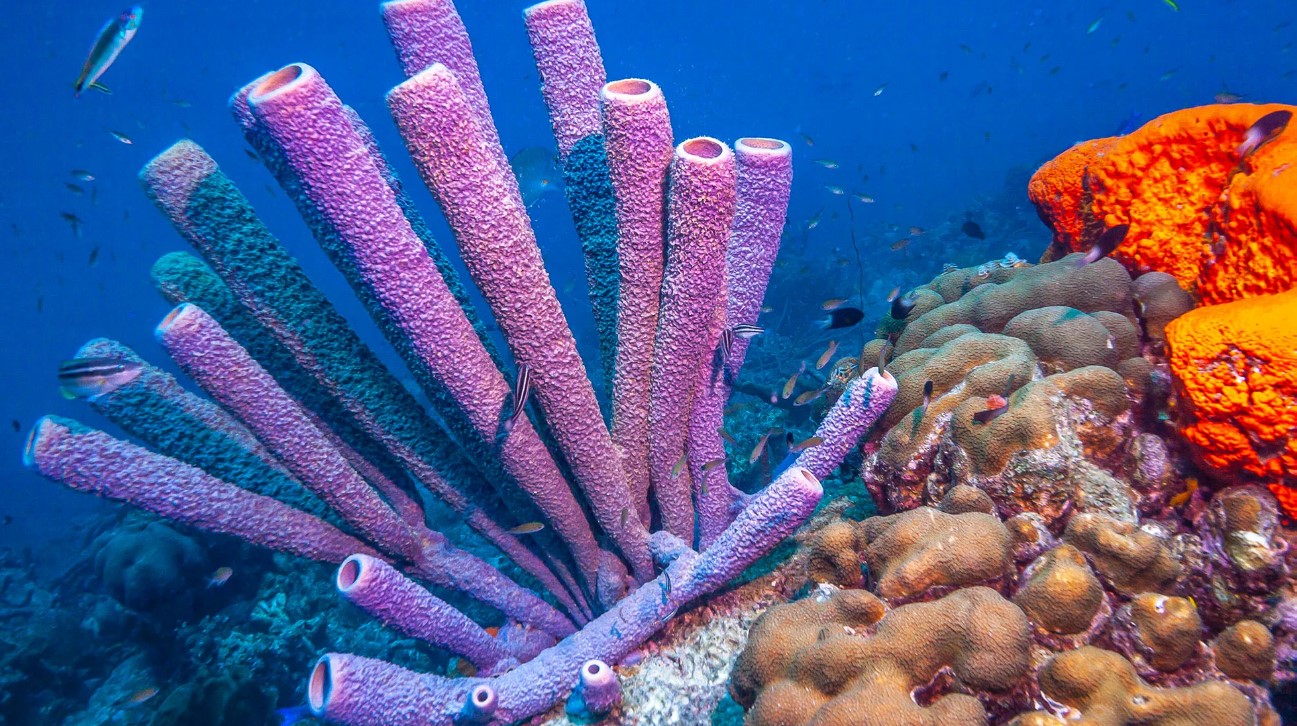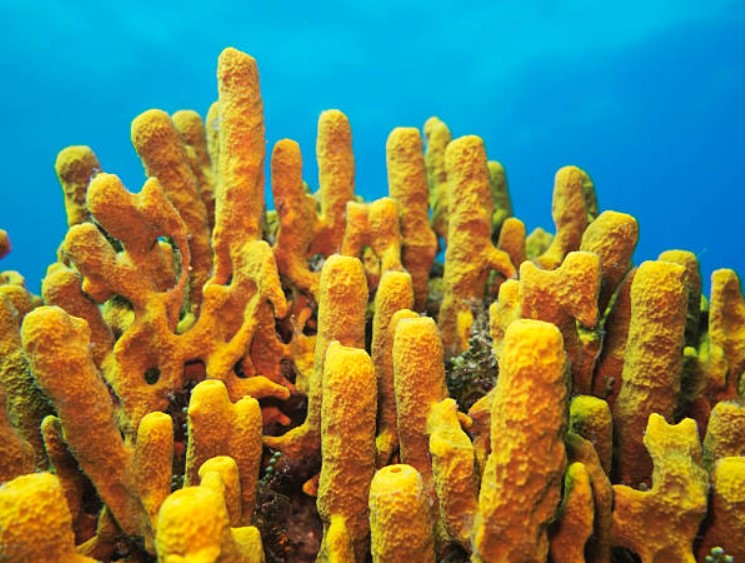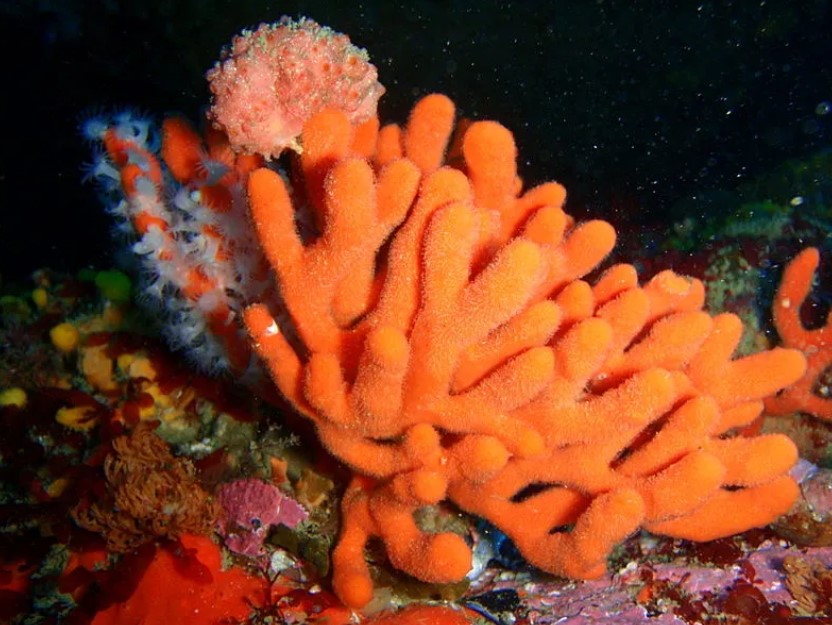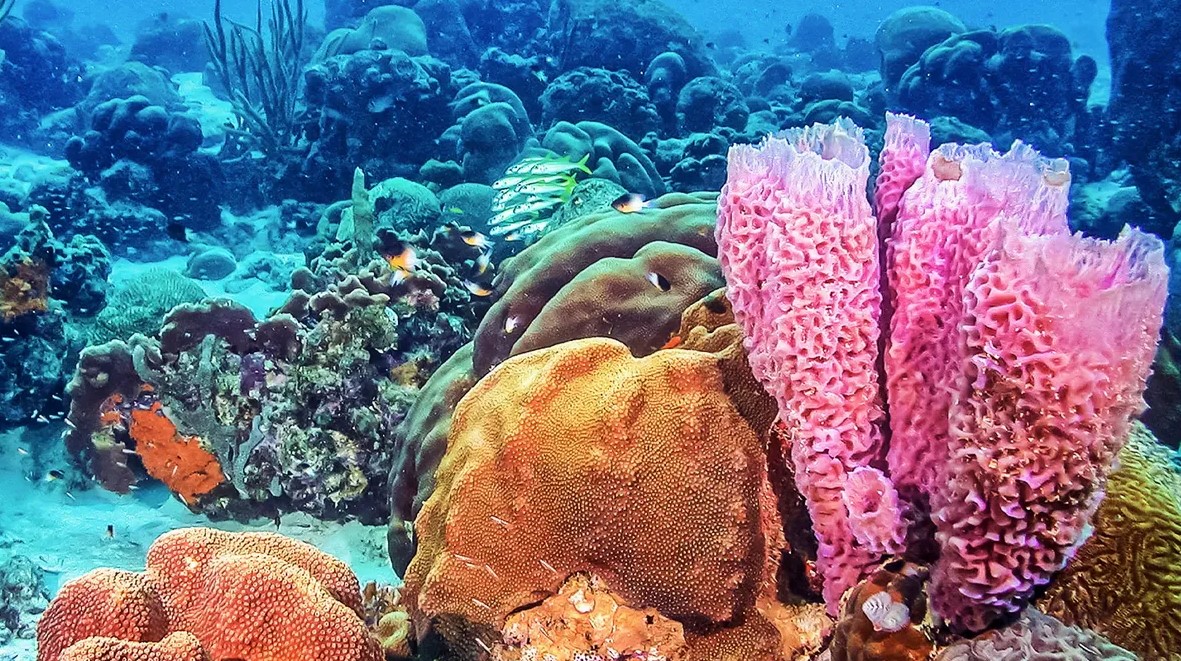Free the Ocean Blog
The Fascinating and Surprising World of Sea Sponges
When you think of ocean life, sea sponges might not be the first creatures that come to mind. These seemingly simple organisms lack the hearts, faces, or fins we often associate with marine animals. But prepare to be amazed, because sea sponges are way cooler than you ever imagined!

Glow-in-the-Dark Sponges
Bioluminescent creatures, like the anglerfish, are fascinating. But did you know that some sea sponges can also emit light? Researchers have found a deep-sea sponge species that glows in the dark! The bioluminescent sponges, discovered at depths of over 10,000 feet, might use their glow to attract unsuspecting prey.

Unique Filter Feeders
Sponges are known as filter feeders, straining water through their pores to capture nutrients and organic debris. While they mostly eat bacteria and small food particles, some species are actually carnivorous, opting for tiny crustaceans and plankton.
Pollution-Busting Powerhouses
Sea sponges are incredible decontaminators! They can filter up to 20,000 times their volume in water daily, removing pollutants from the ocean. By capturing harmful substances like sewage and pesticides, sponges help prevent toxins from making their way up the food chain. Some researchers are even studying sponges for their potential to increase water quality and reduce pollution in Europe.

Medicinal Marvels
Sea sponges are treasure troves of biochemical compounds! They produce substances like proteins, fats, and nucleosides (similar to DNA building blocks) that can help create life-saving drugs. These sponge-derived medicines have been used to treat diseases like leukemia, lymphoma tumors, breast cancer, chickenpox, and shingles. Even the first FDA-approved drug to treat HIV contained nucleosides from sea sponges!

Next time you’re snorkeling or admiring the beauty of the ocean, give a nod of gratitude to the humble sea sponge. These unsung heroes of the deep provide countless benefits to both our marine ecosystems and our lives on land.





